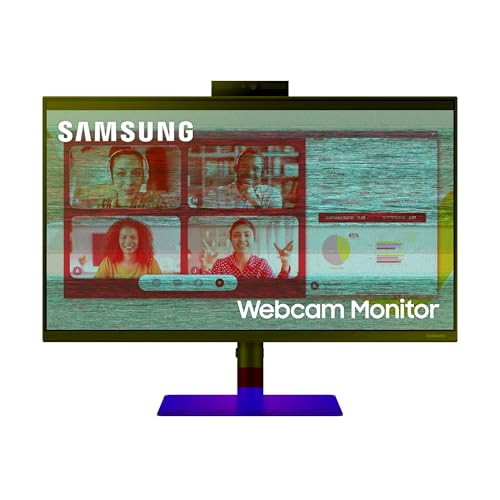Understanding the Benefits of a 24-inch 144Hz Monitor
Smooth Visuals for Gaming
One of the standout benefits of a 24-inch 144Hz monitor is the incredibly smooth visuals it offers. When you’re gaming, each frame matters, and a refresh rate of 144Hz means the display updates 144 times per second. This creates a more fluid experience and can give you a competitive edge, particularly in fast-paced games where every millisecond counts. Imagine being in heated gameplay where quick reactions are crucial; the smoother visuals can help make those split-second decisions much easier.
Reduced Motion Blur
Another important advantage is the reduction of motion blur. In traditional monitors, fast-moving images can appear blurry or choppy. However, a 144Hz monitor diminishes this effect significantly, making it perfect for not just gaming but also watching action-packed movies. Picture a racing scene where the speed and clarity of the visuals can impact your overall enjoyment; a 144Hz monitor brings these scenes to life, providing a clearer picture without the annoying streaks.
Better Comfort for Extended Use
Additionally, many users find that higher refresh rates contribute to less eye strain over longer periods. The smooth transitions and clear images reduce the effort your eyes have to exert while viewing, enhancing comfort during long gaming sessions or extended work hours. Think about those late-night gaming marathons; investing in a 144Hz monitor can mean fewer headaches and discomfort.
Key Features to Look For When Buying
Resolution Matters
When selecting a 24-inch 144Hz monitor, pay close attention to the resolution. Higher resolutions like Full HD (1920 x 1080) or even Quad HD (2560 x 1440) provide sharper images. A sharp display enhances everything from gaming to general use, ensuring you see every detail. Imagine gaming in a beautifully rendered world where the clarity draws you into the experience.
Panel Technology Types
Consider the type of panel technology used in monitors. There are generally three types: TN (Twisted Nematic), IPS (In-Plane Switching), and VA (Vertical Alignment). TN panels are excellent for fast response times but offer poorer colour reproduction. IPS panels provide vibrant colours and wide viewing angles, making them ideal for those who seek quality visuals even from the side. VA panels offer good contrast ratios and depth in colours. Depending on your primary use, choosing the right panel can significantly affect satisfaction.
Connectivity Options
Connectivity is vital as well. Look for monitors with multiple ports like DisplayPort and HDMI. Selecting a monitor with these ports will provide more flexibility in connecting it to different devices, such as consoles and gaming PCs. We often overlook how important easy connection is until we need to plug in multiple devices.
Ergonomic Adjustability
We should also consider ergonomic adjustments. A monitor with height, tilt, and swivel features can enhance comfort, ensuring that your setup fits perfectly around your workspace or gaming space. Adjustability enables you to customize your monitor’s position, promoting a better posture while viewing, whether for work or play.
Top Recommended 24-inch 144Hz Monitors
Affordable Options
For those on a budget, there are excellent options that won’t break the bank yet still offer the performance you desire. Monitors in this category balance price and performance seamlessly, enabling you to enjoy high-refresh-rate gaming at a reasonable cost.
Premium Choices
If you prefer a premium experience, consider monitors offering high-end features. Although these may come at a higher price point, they often include advanced technology, superior colour accuracy, and enhanced build quality. They cater well to serious gamers or professionals who heavily rely on monitor performance.
Brand Reliability
Do not overlook brand reputation as well. Established brands often provide good customer service and product reliability, especially when investing in technology like monitors. It’s often worth sticking to brands that have built a reputation for quality and service.
How to Set Up Your Monitor for Optimal Performance
Find the Right Positioning
Proper positioning of your monitor is crucial. We recommend placing the monitor at eye level and about an arm’s length away from you. This will not only help reduce neck strain but also enhance your viewing experience by ensuring that you are directly in line with the screen.
Adjust Refresh Rate and Resolution Settings
After connecting your monitor, it’s essential to adjust the refresh rate and resolution settings on your PC. Make sure to select 144Hz from your display settings to take advantage of your monitor’s capabilities. This adjustment maximises performance and ensures that you enjoy the smoothest visuals possible.
Enable Optimal Game Modes
Many modern monitors come with pre-set game modes that enhance visual performance depending on the game type. If available, we suggest using these settings for different genres, as they can improve your gaming experience significantly, making the colours pop and providing clearer details.
Enhancing Your Experience: Accessories and Add-ons
Quality Cables
Investing in high-quality cables will make a difference. Use cables that support high refresh rates to ensure you’re getting the full benefit from your monitor. A poor-quality cable can cause signal loss, leading to subpar performance.
Monitor Stands and Arms
Consider getting an ergonomic monitor stand or arm to further enhance your setup. These shelves or arms allow for better height adjustment and positioning, leading to improved comfort during extended use.
Calibration Tools
To achieve the best image quality, invest in monitor calibration tools. By adjusting your monitor’s brightness, contrast, and colour settings, you can optimise your viewing experience to match your preferences and the tasks at hand.


























